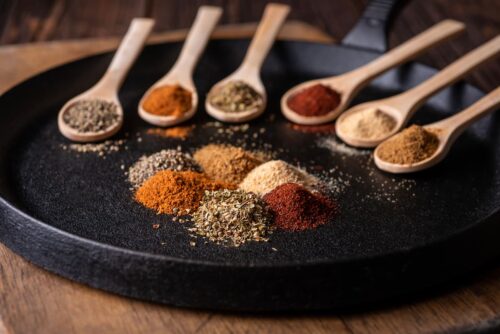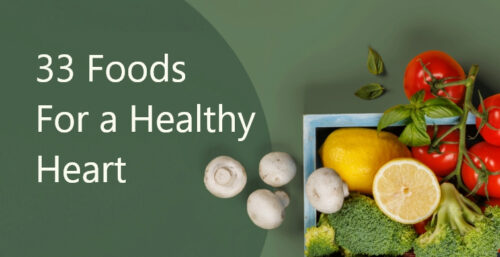Carbohydrates & Sugar
Updated April 11, 2013
Sugar is generally thought of as an intensely sweet-tasting substance that’s highly refined and unhealthy. These highly concentrated carbohydrates affect the brain’s chemistry and can lead to dependency. There are common myths about sugar, such as: sugar turns to fat, causing obesity and/or type-2 diabetes, and sugars have a high glycemic index. Simple sugars, especially fructose, will cause blood triglycerides to rise in sensitive people and make weight loss more difficult when they make up a significant part of one’s diet. Refined sugars cause tooth decay and may lead to nutritional imbalances. However, when used in small amounts, simple sugars can enhance the enjoyment of the McDougall Diet without adverse consequences. Artificial sweeteners have few benefits and are not generally recommended. The significance of the glycemic index (a popular measurement of one quality of food) is over-rated and often causes people to make incorrect diet choices. My best advice is to consume sugars in their natural forms found in unprocessed starches, vegetables and fruits.
Related Newsletter Articles
+-(articles open in a new window)
- April 2011: USDA Demonizes Starch, While Promoting Meat, Dairy, and Disease
- December 2012: Coke Keeps You Thin (Sugar Is Not Fattening)
- January 2013: Denis Burkitt, MD Opened McDougall’s Eyes to Diet and Disease
- August 2013: GMO Foods: A Potentially Disastrous Distraction
- September 2013: Human Genes are Turned On and Off by Diet
- April 2013: “Vegan,” “Plant-Based,” “Starchivore”: What Do You Call Yourself?
- February 2013: Nathan Pritikin – McDougall’s Most Important Mentor
- June 2010: Sugar: Adding Pleasure to the Satisfaction of Starches
- July 2013: Salt Sugar Fat: How the Food Giants Hooked Us
- March 2013: The Mediterranean Diet Is a Weight-Gainer, The Asian Diet Should Be Our Goal
- October 2012: George McGovern’s Legacy: The Dietary Goals for the United States
- December 2012: Fat Paralyzes Insulin, Making Diabetes Worse
- November 2012: Obama’s Nutritional Knowledge Will Heal America
- July 2011: Just a Little More About Starch and The Starch Solution
- July 2012: Lessons from the Past, Directions for the Future: The WWI Starch Solution for Denmark
- March 2102: White Rice and Diabetes
- January 2012: Dark Chocolate Can Be a Small Part of the McDougall Diet
- May 2011: The Egyptian Mummy Diet Paradox
- February 2009: Introduction to New McDougall Book — The Starch Solution
- May 2008: International Year of the Potato, 2008
- July 2010: Fat or Carbs: Which is Worse?
- February 2008: For the Love of Grains
- July 2006: Glycemic Index — Not Ready for Prime Time
- September 2006: Sugar, Coated with Myths
- October 2006: Refined Carbohydrates for Food Addicts
- November 2006: Artificial Sweeteners Are Unnecessary and Unwise
- Cutting Food Costs in These Times of Economic Downturn
- October 2007: DNA Testing Proves Humans Are Designed as Starch Eaters
- October 2008: The Organic Food Movement—Too Little, Too Late
- December 2008: The Ancient Human Diet Is Starch-based
- April 2004: People – Not Their Words – Tell “The Carbohydrate Story”
Related Independent Research
+-Bolton-Smith C, Woodward M. Dietary composition and fat to sugar ratios in relation to obesity. Int J Obes Relat Metab Disord. 1994 Dec; 18(12):820-8.
http://www.ncbi.nlm.nih.gov/pubmed/7894521
Brunzell JD, Lerner RL, Hazzard WR, Porte D Jr, Bierman EL. Improved glucose tolerance with high carbohydrate feeding in mild diabetes. N Engl J Med. 1971 Mar 11; 284(10):521-4.
ADA recommends high carbohydrate intake: http://www.diabetes.org/diabetes-research/summaries/anderson-carbs.jsp
Ebbeling CB, Feldman HA, Chomitz VR, et al. A Randomized Trial of Sugar-Sweetened Beverages and Adolescent Body Weight. N Engl J Med. 2012; 367:1407-16. http://www.ncbi.nlm.nih.gov/pmc/articles/PMC3494993/
Hellerstein MK. De novo lipogenesis in humans: metabolic and regulatory aspects. Eur J Clin Nutr. 1999 Apr; 53 Suppl 1:S53-65. http://www.portalsaudebrasil.com/artigospsb/fisiolog160.pdf
Hu EA, Pan A, Malik V, Sun Q. White rice consumption and risk of type 2 diabetes: meta-analysis and systematic review. BMJ. 2012 Mar 15;344:e1454. http://www.ncbi.nlm.nih.gov/pmc/articles/PMC3307808/
Neal B. White rice and risk of type 2 diabetes. BMJ. 2012 Mar 15;344:e2021. http://211.144.68.84:9998/91keshi/Public/File/38/344-7851/pdf/bmj.e2021.full.pdf
Janket SJ, Manson JE, Sesso H, Buring JE, Liu S. A prospective study of sugar intake and risk of type 2 diabetes in women. Diabetes Care. 2003 Apr; 26(4):1008-15. http://care.diabetesjournals.org/content/26/4/1008.full
Levine AS, Kotz CM, Gosnell BA. Sugars: hedonic aspects, neuroregulation, and energy balance. Am J Clin Nutr. 2003 Oct; 78(4):834S-842S. http://ajcn.nutrition.org/content/78/4/834S.full
McDevitt RM, Bott SJ, Harding M, Coward WA, Bluck LJ, Prentice AM. De novo lipogenesis during controlled overfeeding with sucrose or glucose in lean and obese women. Am J Clin Nutr. 2001 Dec; 74(6):737-46
http://ajcn.nutrition.org/content/74/6/737.long
Minehira K, Bettschart V, Vidal H, Vega N, Di Vetta V, Rey V, Schneiter P, Tappy L. Effect of carbohydrate overfeeding on whole body and adipose tissue metabolism in humans. Obes Res. 2003 Sep; 11(9):1096-103. http://onlinelibrary.wiley.com/doi/10.1038/oby.2003.150/full
Perry GH, Dominy NJ, Claw KG, et al. Diet and the evolution of human amylase gene copy number variation. Nature Genetics. 2007; 39:1256-60. http://www.ncbi.nlm.nih.gov/pmc/articles/PMC2377015/
Slavin JL, Martini MC, Jacobs DR Jr, Marquart L. Plausible mechanisms for the protectiveness of whole grains. Am J Clin Nutr. 1999 Sep; 70(3 Suppl):459S-463S. http://ajcn.nutrition.org/content/70/3/459s.full
Slavin JL. Why whole grains are protective: biological mechanisms. Proc Nutr Soc. 2003 Feb; 62(1):129-34. http://bit.ly/122CRyU
Sorensen LB, Astrup, A. Eating dark and milk chocolate: a randomized crossover study of effects on appetite and energy intake. Nutrition and Diabetes. 2011; 1, e21. http://www.nature.com/nutd/journal/v1/n12/abs/nutd201117a.html
Recommended Articles

Can Oatmeal Reverse Heart Disease? 4 Benefits of This Superfood

Are There Any Spices to Avoid with Diabetes?






